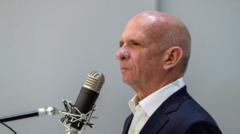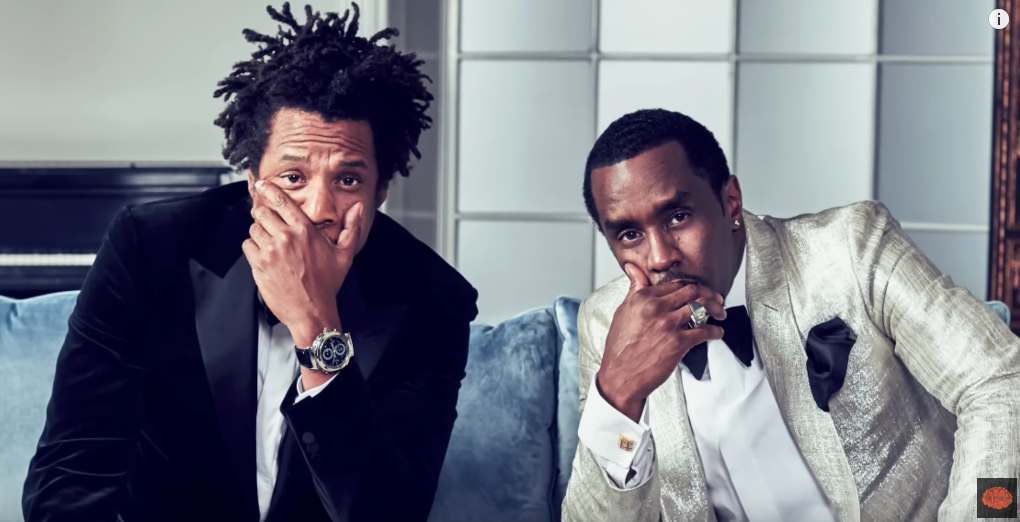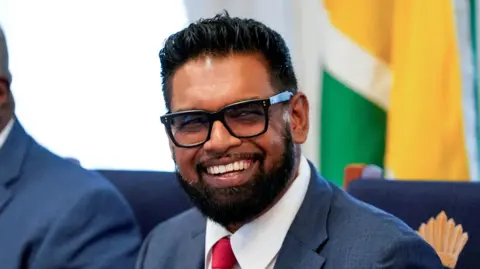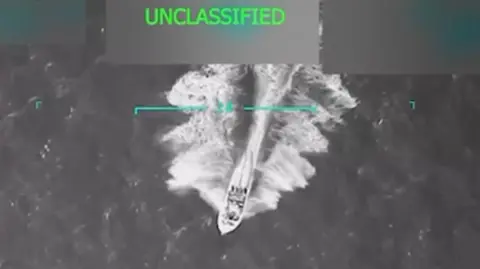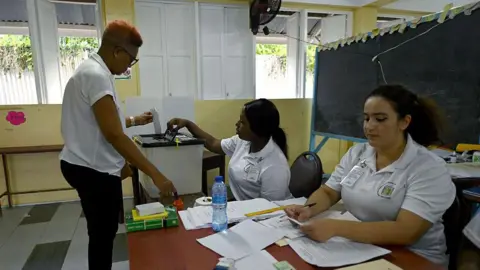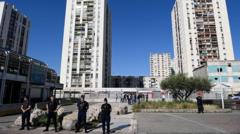In a startling turn of events, Hugo Carvajal, the former head of military intelligence in Venezuela, has pleaded guilty to drug trafficking and narco-terrorism charges in a U.S. court. Carvajal, often referred to as "El Pollo" (The Chicken), was once amongst the most powerful officials in Venezuela, accused of being part of a drug-smuggling ring composed of high-ranking military officers. His guilty plea underscores a significant fall from grace for the once-feared spymaster, who was captured in Madrid while attempting to evade justice, masked with a fake moustache and wig.
At 65, Carvajal's plea was anticipated as he was set to face trial in New York concerning allegations of aiding the notorious Cartel de los Soles—an organization exploiting drug trafficking for profit under the auspices of Venezuelan military elites. The Cartel, named after the sun insignias worn by military hierarchy, reportedly utilized cocaine as a weapon to flood American cities, notably New York, with narcotics.
Notably, Carvajal reportedly collaborated with the Revolutionary Armed Forces of Colombia (FARC), supplying them with weaponry in exchange for a significant share of profits from cocaine shipments, as detailed by U.S. Attorney Jay Clayton. His shift to a guilty plea arises amidst speculation that he may have negotiated for a reduced sentence in exchange for compromising information on current Venezuelan leader Nicolás Maduro’s administration.
Once an ally of the late President Hugo Chávez, relations between Carvajal and Maduro deteriorated, particularly post-2017 when Carvajal publicly supported anti-Maduro protests. Following the failed military coup led by opposition leader Juan Guaidó in 2019, Carvajal went into hiding in Spain before his ultimate arrest and extradition to the United States.
This development comes amidst ongoing scrutiny of Maduro's regime, which has faced U.S. sanctions for alleged involvement in drug trafficking, a situation now casting further shadows on the Venezuelan government as more details from Carvajal's testimony may unravel.
At 65, Carvajal's plea was anticipated as he was set to face trial in New York concerning allegations of aiding the notorious Cartel de los Soles—an organization exploiting drug trafficking for profit under the auspices of Venezuelan military elites. The Cartel, named after the sun insignias worn by military hierarchy, reportedly utilized cocaine as a weapon to flood American cities, notably New York, with narcotics.
Notably, Carvajal reportedly collaborated with the Revolutionary Armed Forces of Colombia (FARC), supplying them with weaponry in exchange for a significant share of profits from cocaine shipments, as detailed by U.S. Attorney Jay Clayton. His shift to a guilty plea arises amidst speculation that he may have negotiated for a reduced sentence in exchange for compromising information on current Venezuelan leader Nicolás Maduro’s administration.
Once an ally of the late President Hugo Chávez, relations between Carvajal and Maduro deteriorated, particularly post-2017 when Carvajal publicly supported anti-Maduro protests. Following the failed military coup led by opposition leader Juan Guaidó in 2019, Carvajal went into hiding in Spain before his ultimate arrest and extradition to the United States.
This development comes amidst ongoing scrutiny of Maduro's regime, which has faced U.S. sanctions for alleged involvement in drug trafficking, a situation now casting further shadows on the Venezuelan government as more details from Carvajal's testimony may unravel.

